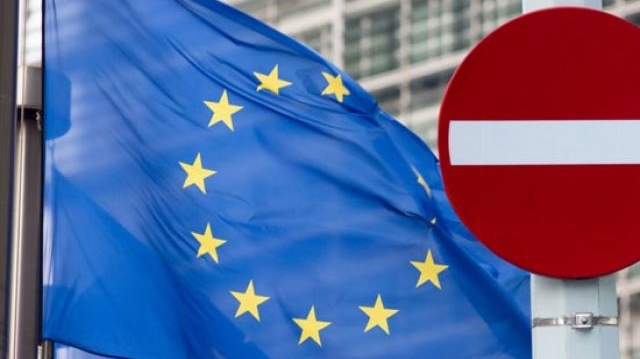
The European Commission proposed introducing sanctions against the Russian liquefied natural gas industry, Politico magazine reported on May 6.
According to the documents, these measures will not directly prevent the import of Russian LNG into the EU. Instead, they will prevent EU countries from re-exporting Russian LNG after receiving it.
“This provision does not affect imports to the EU.”“, highlights the document.
The sanctions will also ban EU participation in upcoming LNG projects in Russia. “Such a measure limits the expansion of Russian LNG production capacity and therefore limits Russia’s revenue.”states the proposal.
In addition, the Commission, the EU’s executive body, wants companies to more widely disseminate information about LNG imports from Moscow.
The move marks the first time the bloc has targeted Moscow’s lucrative gas sector, as part of Brussels’ 14th round of sanctions against Russia. And it is increasingly clear that Western efforts to cut Moscow’s fossil fuel revenues are falling woefully insufficient, as oil price caps are being greatly relaxed and sanctions evasion becomes more widespread.
However, while the switch to LNG marks a significant shift in EU strategy, the proposed sanctions would only affect a portion of Russia’s fossil fuel revenues. Last year, the European Union’s resale of Moscow’s liquefied natural gas accounted for just a quarter of Russia’s total revenue from trading in highly refrigerated gas. Sanctions on upcoming LNG projects will largely be preventive, experts say, as none currently ship cargo to Europe.
EU ambassadors will discuss these measures on May 8. There is growing political support from major EU players such as Germany and Italy to crack down on Russian LNG, but Hungary, which relies heavily on Russian energy, has historically blocked all gas sanctions.
Sanctions or not, the EU has cut Russian gas imports by about two-thirds since the start of the Ukraine conflict, as Moscow cut supplies and countries turned to alternatives in Norway and the United States. Last year, Russian LNG accounted for just 5 percent of EU energy consumption.
The proposal states that “Russia receives significant income” from the sale of LNG. In particular, it is proposed to prohibit the use of EU ports, finances and services for the re-export of Russian LNG.
The proposed sanctions should therefore force Moscow to reconsider its LNG business model, especially with regard to the supplies it sends to Asia via Europe, such as Belgium, France and Spain, which serve as important transshipment points. .
“If they can’t transship in Europe, they may have to send their ice-class tankers on longer voyages.”said Laura Page, a gas expert at data analytics company Kpler data.
Source: Rossa Primavera
I am Michael Melvin, an experienced news writer with a passion for uncovering stories and bringing them to the public. I have been working in the news industry for over five years now, and my work has been published on multiple websites. As an author at 24 News Reporters, I cover world section of current events stories that are both informative and captivating to read.
